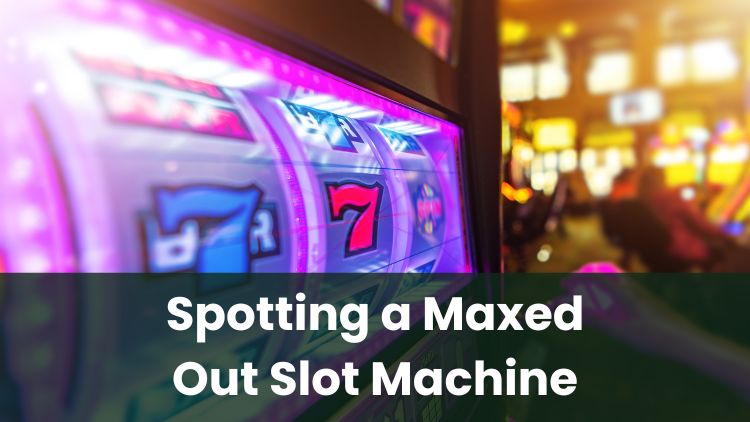
Slot machines are a common feature in both online and land-based casinos across the UK. Many players wonder how these games work and whether it’s possible to tell when a machine has reached its payout limit—often referred to as being “maxed out.”
Understanding what “maxed out” really means when it comes to slot machines makes it easier to recognise what to look out for and helps clear up common misconceptions.
Read on to learn what players usually mean by a “maxed out” slot, how payout systems actually function, and to separate fact from fiction when it comes to your chances if you decide to play.
What Does "Maxed Out" Actually Mean?
When players say a slot is “maxed out,” they often mean the machine has just paid a big jackpot and won’t pay out again for some time. Others might think that all the major prizes have already been claimed, making another win unlikely in the near future. These ideas are based more on speculation than on how the machines actually work.
Slot machines operate using Random Number Generators (RNGs), which ensure that every spin is completely independent. No matter what happened on previous spins, the result of a player’s next spin is entirely random and unrelated.
This means slots don’t have a “memory” that influences when or how they pay out. Each spin and potential prize is a standalone event with no connection to earlier outcomes.
Signs of a Full Progressive Jackpot
Progressive jackpots work differently from regular slots, as each spin adds to the prize fund until it is won. If you see the jackpot display steadily increasing, that’s this process in action.
Some games include a “must drop” feature, which means the jackpot is programmed to pay out before reaching a specific limit. When the total gets close to that amount, the jackpot remains fixed until it’s claimed.
However, as explained earlier, every outcome is determined by chance. Even when a progressive jackpot is near its maximum, it’s not possible to predict when it will be won. This is important to keep in mind when considering whether you want to play.
Do Slot Machines Have Set Payout Triggers?
It’s a common belief that slot machines pay out on a cycle—perhaps after a certain number of spins. However, as mentioned earlier, modern slots use RNGs to ensure every result is entirely unpredictable.
No matter how long it’s been since the last win, or how recently a prize was paid out, each spin is an independent event. There are no hidden triggers or patterns that can be tracked to influence the outcome.
If you’re looking to understand the system in more detail, it’s worth knowing that every slot game offered by a licensed operator is regulated under UK Gambling Commission rules, ensuring that all results are fair and genuinely random.
Popular Myths Around Maxed Out Slots
There are a few persistent myths about so-called maxed out slots that often lead to confusion:
-
A slot won’t pay out again shortly after a big win.
-
Games go through “hot” or “cold” streaks.
-
Lights, sounds, or other visual cues can indicate when a slot is about to pay.
These ideas don’t reflect how slot machines actually work. As explained earlier, outcomes are determined by RNGs, which means every spin is completely independent.
Instead of relying on guesswork or casino myths, if you’re interested in playing, understanding the underlying mechanics can help you make clearer decisions and avoid common misconceptions.
How Payouts Work in Progressive Machines
Progressive slots—whether online or in a physical casino—can run on their own or be linked with others to build a larger jackpot. With every bet placed, a small portion contributes to the prize fund, which continues to grow until someone meets the conditions required to win.
When multiple machines are linked to the same jackpot, the total can increase more quickly. However, the jackpot only pays out when the game’s specific conditions are met. There’s no set timing—just the mechanics laid out in the game’s rules.
If you’re ever unsure how a particular progressive slot works, it’s a good idea to check the game’s information or rules section. This will explain how prizes are triggered and what you can expect during play.
Is Playing Maxed Out Machines Worth It?
Some players believe that using a slot machine just after a large payout—or when it’s thought to be “maxed out”—might affect their chances of winning. In reality, as explained earlier, each spin is completely random and unaffected by previous outcomes. If you do choose to play, it’s worth remembering that there’s no added advantage in timing your session this way.
Making decisions based on accurate information, rather than myths or assumptions, can help keep your play balanced and within your limits.
By understanding how the games work and what influences the outcome, you’re better equipped to enjoy slots in a responsible and informed way—knowing it’s all down to chance.
**The information provided in this blog is intended for educational purposes and should not be construed as betting advice or a guarantee of success. Always gamble responsibly.
